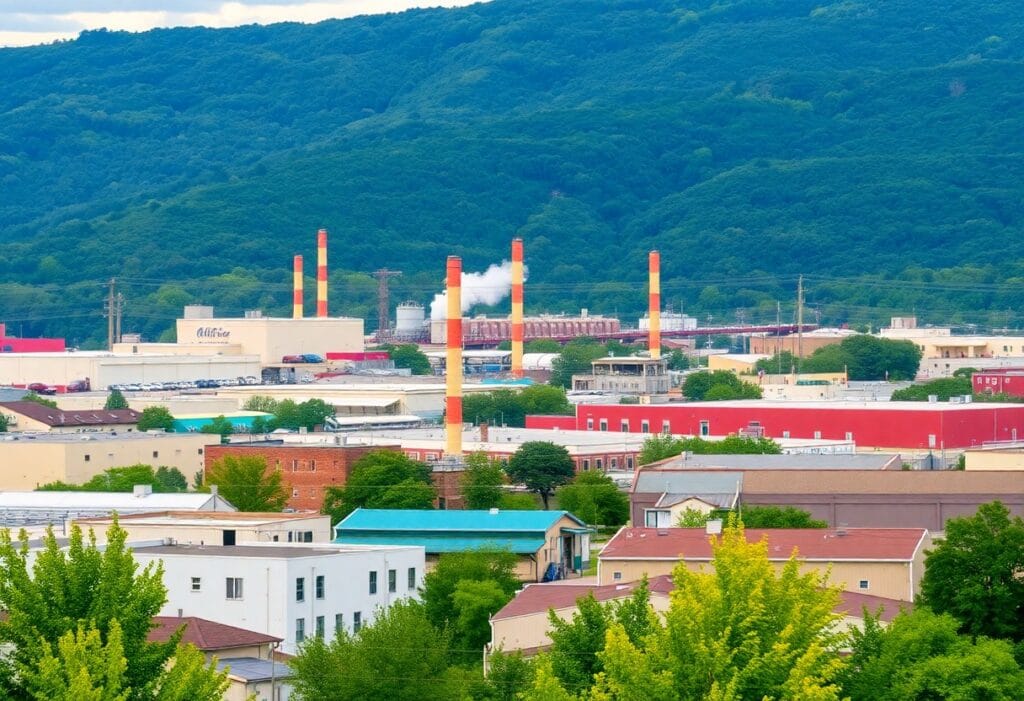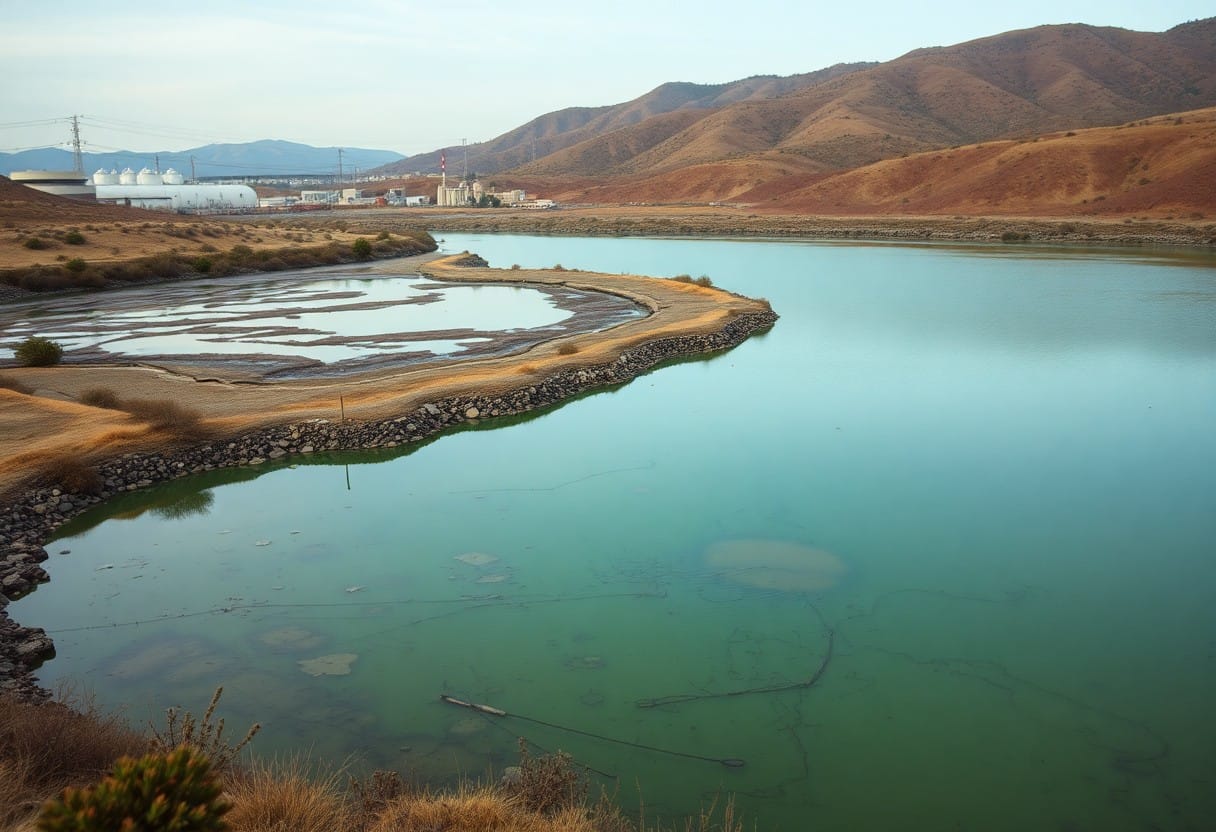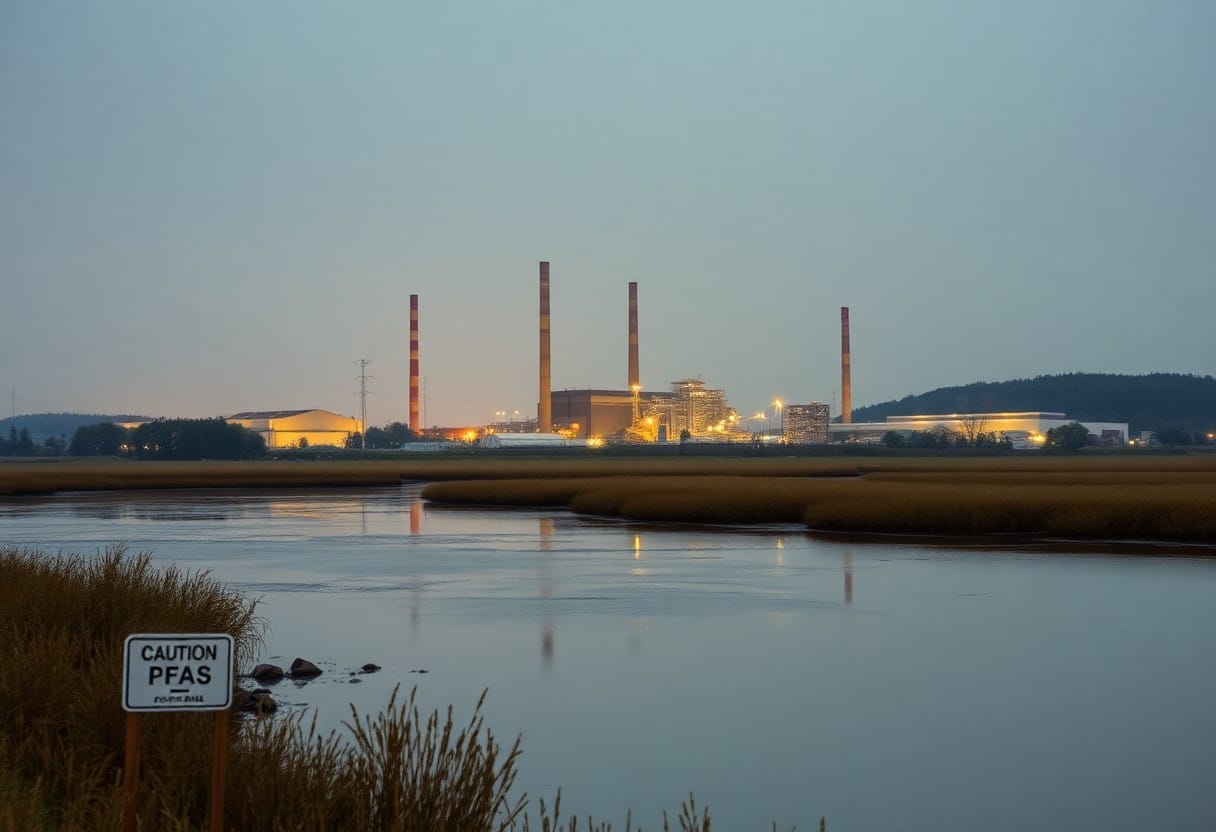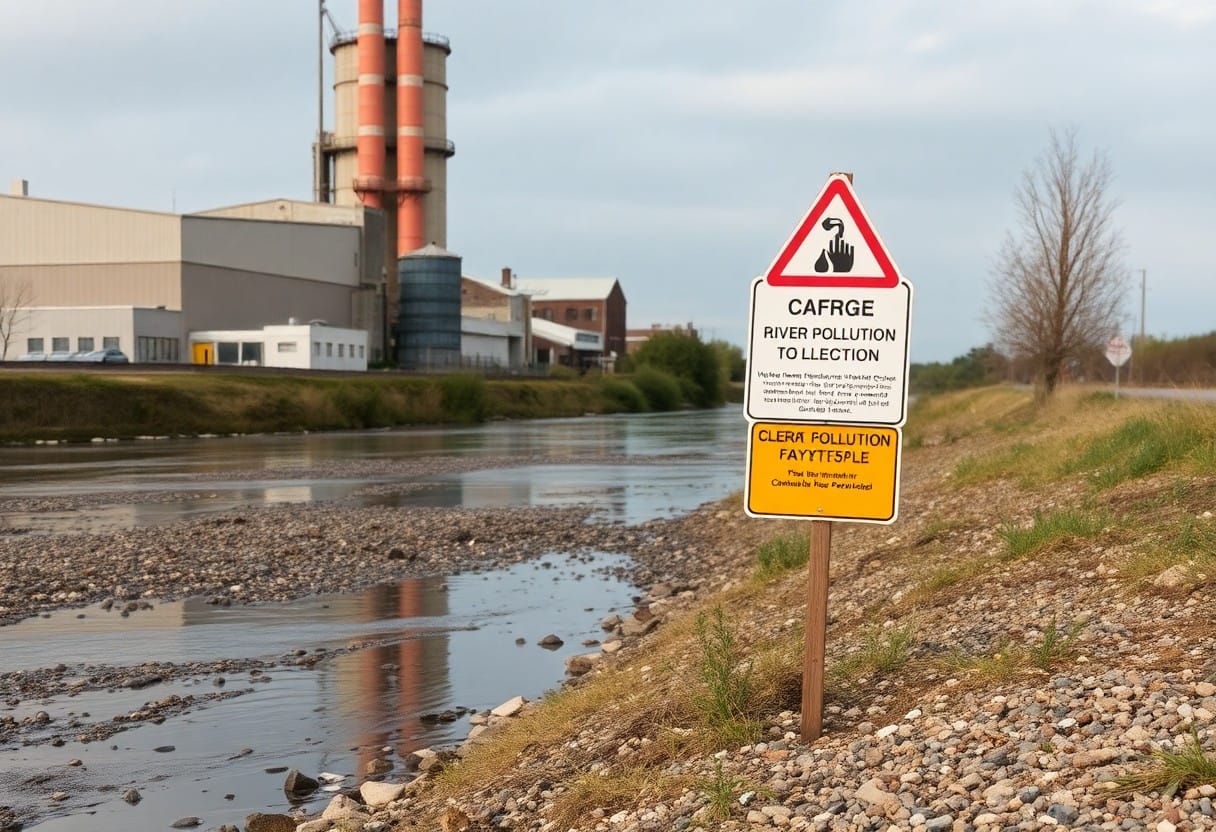Chemours, a major chemical manufacturer, has made significant impacts on the environment and health of the Fayetteville community. You may be concerned about the presence of PFOA and PFOS in local water sources, which have been linked to serious health issues. Additionally, while the company claims to prioritize sustainability, local reports indicate ongoing challenges related to air and water quality. Understanding this complex relationship between Chemours and Fayetteville is necessary for you to navigate the implications for your health and community well-being.
Background on Chemours and Fayetteville
While Chemours is a key player in the chemicals industry, its operations in Fayetteville have sparked significant discussions about environmental responsibilities. Established from a split with DuPont in 2015, Chemours has sought to innovate and expand, yet the impact on the local communities has raised considerable concern regarding pollution and health implications.
Overview of Chemours
Beside its focus on producing high-performance materials, Chemours has faced scrutiny due to its manufacturing processes, which have left a lasting impact on the environment. Your awareness of the company’s practices is crucial for understanding the broader implications for public health and local ecosystems.
Fayetteville’s Economic and Environmental Landscape
Beside the economic benefits of industrial activities, Fayetteville has dealt with environmental challenges that affect your community’s well-being. This dynamic reveals both the reliance on industry for job creation and the need for stricter environmental safeguards to protect your surroundings.
Chemours’ operations in Fayetteville have brought both economic growth and environmental risks to the forefront. While the company contributes to job creation and economic stability, the presence of hazardous chemicals in your air and water raises alarming questions about public health. Instances of chemical contamination and its potentially harmful effects on local residents emphasize the urgent need for effective measures. You should be aware of the positive initiatives Chemours has introduced to improve sustainability, but these efforts must be seen alongside the pressing environmental challenges that continue to affect your community.
Chemical Releases and Regulations
Any discussion about Chemours’ environmental impact must consider the Stop Chemours Expansion — Clean Cape Fear campaign, emphasizing the urgent need to hold the company accountable for its chemical releases. Local communities have raised concerns about the potential risks associated with these emissions and the regulatory frameworks that govern them.
Key Pollutants
Among the major pollutants linked to Chemours are per- and polyfluoroalkyl substances (PFAS), which have been associated with several health risks. These chemicals can persist in the environment, leading to detrimental effects on both human health and local ecosystems.
Regulatory Framework and Compliance
After decades of industrial activity, understanding the regulatory framework surrounding Chemours is imperative for you. The company is subject to various regulations aimed at controlling its emissions, though compliance has often been called into question by local advocates.
Releases of toxic substances from Chemours highlight gaps in existing environmental regulations. You should be aware that despite regulations, reports indicate that Chemours has repeatedly exceeded permissible emission levels for harmful chemicals. This has raised alarms among community members and environmental groups, emphasizing the necessity for stricter enforcement and transparency in compliance measures, ensuring such dangerous practices do not continue to threaten the health of your communities.
Impact on Public Health
It is vital to recognize that Chemours’ activities have generated significant public health concerns in Fayetteville. The emissions from their facilities have raised alarms over potential health risks for residents, including respiratory issues and long-term illnesses. The surrounding communities have grown increasingly worried about how these pollutants could affect their overall well-being and quality of life.
Air Quality Concerns
Below, pollution from Chemours has severely impacted air quality in Fayetteville, leading to an increased incidence of asthma and other respiratory ailments among local residents. As industrial emissions release harmful substances into the atmosphere, you may notice a decline in air quality, which can directly affect your health and the well-being of your family.
Water Contamination Issues
The contamination of local water sources by Chemours poses serious health risks for Fayetteville’s residents. You should be aware that waterways affected by industrial runoff can lead to the presence of hazardous chemicals in your drinking water, raising concerns over potential illnesses.
But it’s not just the immediate danger that you should be worried about. The long-lasting effects of PFAS contaminants found in water sources may lead to serious health issues, including developmental harm in children, increased risk of cancer, and detrimental effects on your immune system. Acknowledging the seriousness of this water contamination will help you understand the necessity for changes, advocacy, and improved regulations to safeguard your health and that of the community.
Community Response and Activism
Now, community activism has surged in Fayetteville as residents respond to ongoing environmental concerns. Organized efforts have intensified as local groups protest against Chemours expansion plans infuriate environmentalists, rallying for change and demanding transparency from the corporation.
Local Advocacy Groups
About various local advocacy groups have formed in direct response to Chemours’ activities. These organizations work tirelessly to raise awareness, pushing for safer environmental practices and better regulation of the chemical industry, ensuring that your community’s voices are heard.
Public Outreach and Education
Below, you will find that public outreach and education have become vital components of the activism movement in Fayetteville. Community workshops and informational sessions aim to equip residents with knowledge about the environmental risks posed by Chemours, empowering you to engage in local governance and policy-making.
Local efforts have spotlighted how persistent pollution and chemical exposure can impact healthcare and living standards. Educational initiatives provide resources that help you advocate for your family’s health while encouraging participation in town hall meetings and other forums. As a resident, your involvement can lead to a stronger community response, pushing for accountability from Chemours and fostering a healthier future.
Long-term Environmental Effects
Not only does the presence of Chemours in Fayetteville affect immediate environmental conditions, but it also poses lasting consequences that can alter the landscape for generations. The long-term repercussions of chemical exposure on air, water, and wildlife require your attention, as they directly influence your community’s health and sustainability.
Soil and Water Impact
At the heart of Chemours’ operations, soil and water contamination may result from the release of harmful substances. Pollutants can seep into groundwater, jeopardizing drinking water sources for you and your community. The effects ripple outward, affecting agricultural productivity and local ecosystems.
Biodiversity and Ecosystem Changes
Ecosystem dynamics are disrupted in areas influenced by Chemours, leading to a decline in local biodiversity. Species that are sensitive to chemical pollutants may struggle to survive, affecting the entire food chain in your region. As native plants and animals diminish, the ecological balance shifts, potentially allowing invasive species to thrive.
Consequently, the impact on biodiversity can be devastating. The loss of native species diminishes ecosystem resilience, as these organisms often play vital roles in maintaining balanced habitats. You may notice changes in plant and animal populations, with some species facing significant threats to their survival. Moreover, the overall health of local ecosystems declines, leading to implications for pollination, water purity, and climate regulation. Your community could experience a less vibrant natural environment, affecting not only recreational opportunities but also future generations’ ability to engage with and enjoy nature.

Mitigation Efforts and Future Outlook
After extensive assessments and community consultations, strong mitigation efforts have emerged to address Chemours’ environmental footprint on Fayetteville’s communities. These initiatives center on improving monitoring, transparency, and sustainable practices that promote environmental health. As you look to the future, it’s necessary to stay informed and actively participate in ongoing dialogues to ensure effective solutions are implemented for lasting change.
Proposed Solutions
Before delving into the challenges, it’s vital to explore the proposed solutions aimed at reducing the environmental impact. Community activists advocate for stricter emissions regulations, enhanced waste management strategies, and collaborations that prioritize community health over profit. By engaging with local organizations, you can help promote these initiatives and foster a more sustainable future in your area.
Role of Government and Industry
After examining the environmental concerns, it is clear that the role of government and industry is pivotal in creating a sustainable framework. Your involvement can help hold both entities accountable for regulatory compliance and responsible practices, ensuring they prioritize the community’s well-being.
Future collaboration between government and industry in Fayetteville can significantly shape environmental outcomes. By implementing comprehensive policies that emphasize sustainability and social responsibility, both parties can work towards reducing the negative impacts of industrial processes. You may find opportunities to advocate for public health initiatives and better environmental protections, which can contribute to a healthier community. With active participation, you can be part of a meaningful shift towards a more sustainable and resilient future for your neighborhood.
Summing up
Upon reflecting on Chemours’ environmental footprint in Fayetteville’s communities, you must acknowledge the extensive impact of chemical manufacturing on both local ecosystems and public health. Your understanding of these consequences is vital for fostering informed discussions and promoting accountability. By prioritizing knowledge and advocacy, you can play a part in encouraging responsible corporate practices and safeguarding the well-being of your community for future generations.

















